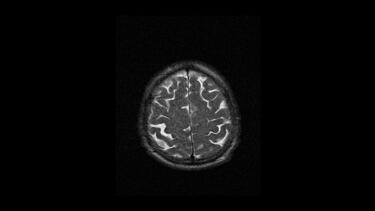Reduction of Economics to Psychology
Behavioral economics, which uses the tools of psychology to explain irrational economic behavior, is in the headlines since Richard Thaler, a pioneer in the field, won the Nobel Prize in Economics. Yale SOM’s Shyam Sunder warns that, while psychology can contribute much to economics, not all economic phenomena can be explained by individual psychology.

Human achievements comprise science, art, the humanities, social sciences, and professional disciplines such as medicine and engineering. Our civilization has achieved much, and led us to want even more. These advances were possible through intensive interaction among the disciplines into which we have organized what we know, without integration into one unified body of knowledge. Insistence on either precise disciplinary boundaries, or on their integration into a single unified body of knowledge, has yielded mixed results, and arguments for and against unification over the recent centuries appear to have settled in a draw.
But the dream of unification has an irresistible appeal: “It is not surprising that talk of the many meanings of unity, namely, fundamental level, unification, system, organization, universality, simplicity, atomism, reduction, harmony, complexity or totality, can bring an urgent grip on our intellectual imagination.”[1]
The yearning for the goal of reductionism persists and continues to present itself in various guises. Economics is no exception. Herbert A. Simon documented the boundedly rational nature of human behavior, and presented evidence for satisficing as the alternative to the optimizing assumption of neoclassical economic theory. However, Simon recognized the perils of succumbing to the temptations of reductionism, and refused:
This skyhook-skyscraper construction of science from the roof down to the yet unconstructed foundations was possible because the behavior of the system at each level depended on only a very approximate, simplified, abstracted characterization of the system at the level next beneath. This is lucky, else the safety of bridges and airplanes might depend on the correctness of the “eightfold Way” of looking at elementary particles.[2] (p. 16).
Like physics and chemistry, psychology and economics also overlap, but only partially. One operates at a micro-level (physics) relative to the macro-level of the other (chemistry). Chemical phenomena are often not derivable from the physics at the micro-level. Complex interactions of components give rise to macro properties absent in the components. Physics and chemistry are closely related, and yet their models are based on different sets of assumptions.
Economics, too, builds simple models (often based on the optimization assumption) to try to understand, describe, and predict complex phenomena—such as a market for coffee beans—in which millions of farmers, consumers, and intermediaries participate. These models explain a significant fraction of variation, but are unable to explain all the variation observed in the relevant market phenomena.
This less-than-100 percent success rate has generated a strange new demand from reductionists for economics to show that all its assumptions are descriptively valid, in Simon’s words, “at the level next beneath.” He knew that the attempts to reduce economics to psychology will fail. The deep intellectual roots of psychology are firmly grounded in individual behavior, while the primary concerns of economics, political science, and sociology are located at the next level of aggregation.
Just as physics contributes to chemistry, so does psychology to the more aggregate-level social sciences. But the latter cannot be derived from psychology. Indeed, research in recent decades shows that aggregate level social structures, even when populated by minimally intelligent participants, often exhibit important properties absent in the individual agents.[3] The properties of water molecules have little in common with those of hydrogen and oxygen; and the hydraulic properties of water in a cup, river or ocean bear little resemblance to the perpetual random Brownian motion of its molecules. Cognitive imperfections of individuals do not preclude rational social order. Should we prefer to walk away from our “irrational” autonomy and trust the philosopher-kings—Putin, Xi, or Trump—to “nudge” us to do the right thing?[4]
[1] Stanford Encyclopedia of Philosophy (https://plato.stanford.edu/entries/scientific-unity/, accessed October 17, 2017).
[2] Herbert A. Simon. 1996. The Sciences of the Artificial. 3rd Edition. MIT Press. ISBN-13: 978-0262691914.
[3] Gode, Dhananjay K. and Shyam Sunder. “Allocative Efficiency of Markets with Zero Intelligence Traders: Market as a Partial Substitute for Individual Rationality.” The Journal of Political Economy 101, no. 1 (February 1993): 119-137.
[4] Thaler, Richard H.; Sunstein, Cass R. (2008). Nudge: Improving Decisions about Health, Wealth, and Happiness. Yale University Press. ISBN 978-0-14-311526-7.